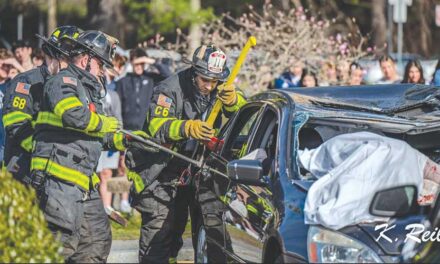Published in the September 30, 2015 edition
By DAN TOMASELLO
LYNNFIELD — If anyone has seen Josh Fox’ Academy Award nominated documentary film Gasland, they will know about the dangers associated with drilling for natural gas.
While Kinder Morgan will not be drilling for natural gas in town, the Texas-based company’s safety record will certainly raise eyebrows as Kinder Morgan prepares to file its permits for the Northeast Energy Direct pipeline with the Federal Energy Regulatory Commission (FERC), the agency that has jurisdiction over pipeline projects, in October.
Kinder Morgan is the largest energy infrastructure company in North America. According to the company’s website, Kinder Morgan owns an interest in or operates approximately 84,000 miles of pipelines and 165 terminals. In addition to transporting natural gas, Kinder Morgan also transports “refined petroleum products, crude oil, carbon dioxide and other materials.” Kinder Morgan also stores or handles a variety of products and materials such as gasoline, jet fuel, ethanol, coal, petroleum coke and steel.
The proposed Kinder Morgan pipeline, known as the Lynnfield Lateral, will be 24 inches in size. Kinder Morgan wants to bring the high natural gas pipeline into Massachusetts and New Hampshire from the Marcellas Shale region of Pennsylvania and upstate New York.
The proposal has had dozens of communities in each of the states impacted by the pipeline up in arms as private homeowners, landowners, businesses and government entities alike push back against the private company’s request to survey properties that would be encumbered by permanent easements along its meandering route.
In Lynnfield, the project would affect Chestnut Street, Willis Lane, North Hill Drive and surrounding streets. The pipeline would also run in close proximity to the Lynnfield Center Water District as well as local wells and aquifers. Local officials and environmental experts have raised concerns about the project’s impact on the town’s water supply.
Safety violations
The Pipeline and Hazardous Materials Safety Administration (PHMSA) cited Kinder Morgan for violating safety standards regarding the distance between a natural gas pipeline and a “high consequence area” in 2009.
According to PHMSA’s final order issued on Sept. 1, 2009, the government agency inspected the Integrity Management Program (IMP) of Kinder Morgan, then the operator of 10 natural gas pipeline systems in 13 states, at its offices in Lakewood, Colo. in August 2006. After the inspection occurred, PHMSA issued a notice of probable violation and fined the company $39,000 for “failing to properly identify all of the high consequence areas that could be affected by the pipeline system.” PHMSA also determined in its violation Kinder Morgan “failed to follow” procedures and, “as a consequence, underestimated the size of the HCAs (high consequence areas).”
PHMSA also stated in its report that “Kinder Morgan did not dispute the violation, but the company argued that “PHMSA’s initial IMP regulations relating to identified sites lacked clarity.”
Kinder Morgan was also cited by PHMSA for the following safety violations in 2011:
• Failing to maintain updated maps showing pipeline locations;
• Failing to test pipeline safety devices;
• Failing to maintain proper firefighting equipment;
• Failing to inspect its pipelines;
• Failing to adequately monitor pipelines’ corrosion levels.
According to a September 2013 article in The Wall Street Journal, a small research firm called Hedgeye Risk Management issued a report that criticized Kinder Morgan’s maintenance record. Hedgeye Risk Management’s Kevin Kaiser accused the company of cutting its pipeline maintenance spending “to a minimum.” Kaiser also accused Kinder Morgan of using those funds to “boost the cash it pays to shareholders and to the general partner that controls the company.”
“We believe that Kinder Morgan’s high-level business strategy is to starve its pipelines and related infrastructure of routine maintenance spending in order to maximize distributable cash flow,” Kaiser stated in the report.
Kinder Morgan CEO Richard Kinder denied the allegations in an interview with The Wall Street Journal. He said the company measures its “performance on [environment, health and safety] categories against 31 categories across all of our five business segments and in all of those we are better than industry average.”
Kaiser stood by his report.
Accidents
According to a February report in the Union Leader, more than 20 Kinder Morgan pipeline accidents have been reported to PHMSA since 2003.
In August 2003, a 26-inch diameter Kinder Morgan natural gas pipeline exploded in a farming area in Caddo County, Okla., causing a 54-foot long section of pipe to be thrown from a ditch.
A 30-inch diameter natural gas pipeline exploded near Marshall, Texas in May 2005 and sent “a giant fireball into the sky and hurling a 160-foot section of pipe onto the grounds of electric power generating plant.” The accident resulted in two injuries and forced 40 people to be evacuated from the area.
In July 2006, a Kinder Morgan and Tennessee Gas pipeline exploded near Campbellsville, Ky., which blew “a 25-foot pipe out of the ground and (sent) it 200 feet away.”
According to PHMSA, a Kinder Morgan gas pipeline exploded and burned for over 10 hours in Pasadena, Texas in September 2008. The Houston Chronicle reported the fire caused by the explosion “could be seen for miles.”
Five Kinder Morgan employees were sent to the hospital in August 2011 after a “flash fire” occurred at a Kinder Morgan pipeline south of Herscher, Ill. in August 2011.
In November 2011, a 36-inch diameter Kinder Morgan Tennessee Gas pipeline’s weld failed and caused an explosion near Glouster, Ohio. The incident caused an explosion that created a “blast crater 30 feet across and 15 deep.” The resulting fire destroyed three homes.
According to PHMSA, a 26-inch Kinder Morgan natural gas pipeline failed in Gray County, Texas in June 2012. Two acres of agricultural land were burned as a result of this accident and State Highway 152 was closed for several hours.
A 30-inch diameter Kinder Morgan pipeline ruptured and exploded in a rural area of Washington Parish, La. in June 2013. No serious injuries were reported, but 55 homes were evacuated.




